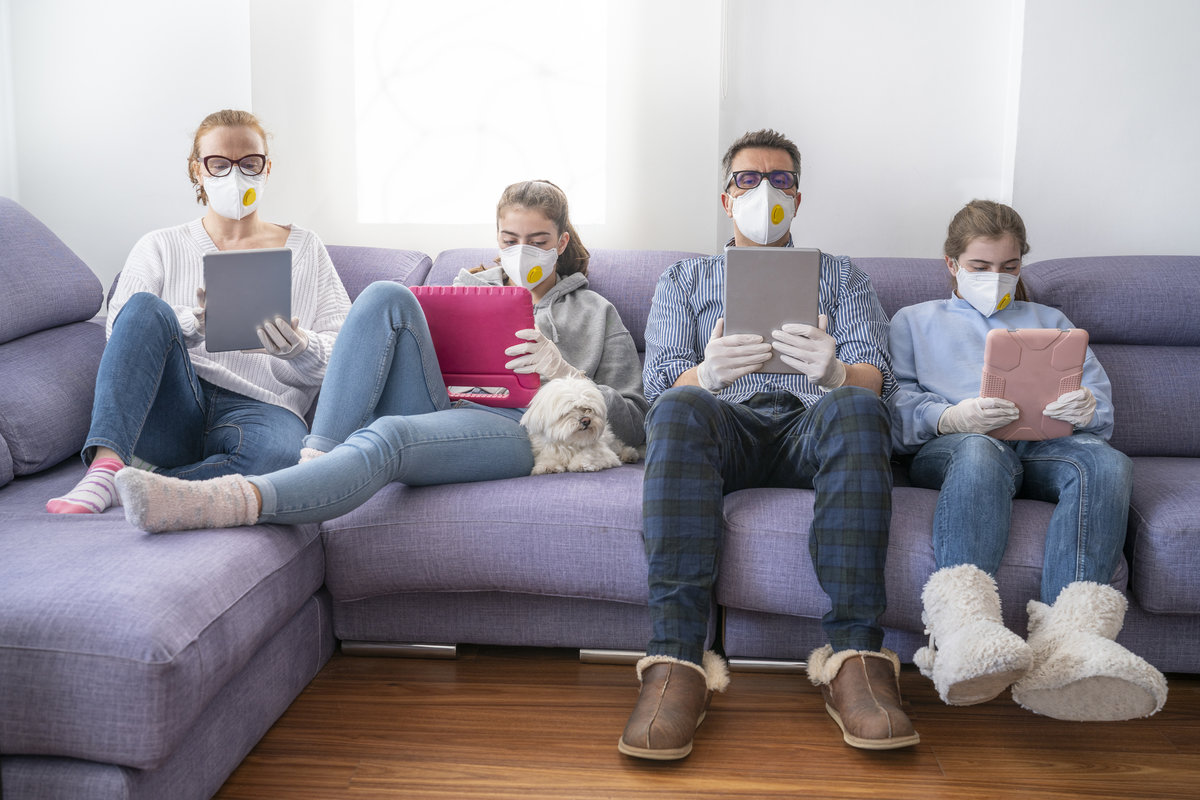
Young people, women and those on lower incomes fared worst in maintaining their wellbeing during COVID-19 lockdowns in South Australia, according to the results of a new Flinders University survey.
The study measured the impact of the COVID-19 pandemic on the wellbeing of South Australians using an innovative wellbeing framework that reflects on various dimensions of life developed by Flinders University researchers and endorsed by the United Nations Development Programme.
A voluntary online survey containing 56 questions related to individual wellbeing was distributed via social media in August and September 2020 with 579 responses received.
The results show that most respondents (71%) were able to maintain overall wellbeing during the pandemic, but more than a half could not maintain wellbeing in psychological and emotional health.
The drivers of poor overall wellbeing reveal that low-income individuals, younger respondents (aged 18-24) suffered disproportionate hardships when compared to the rest of the state’s population.
 Covid-19 Survey Results:
Covid-19 Survey Results:
- 79% of those aged 65 and over maintained overall wellbeing compared to 53% for 18-24 age group.
- Community vitality wellbeing is strong across South Australia.
- 90% of respondents with pets said their pets were a benefit to their wellbeing during COVID-19.
- 28 percentage point drop in those who felt highly hopeful or positive about life before and after the period of self-isolation/lockdown for COVID-19.
- Psychological health and physical health were the aspects most heavily impacted among those who could not maintain wellbeing.
- 92% were accepting of the Government policies on managing the COVID-19 pandemic.
- 64.6% rated the performance of the South Australian Government as high or very high.
Chief Investigator Associate Professor Udoy Saikia from the College of Humanities, Arts & Social Sciences says the survey data presents some concerning results about the mental health impact of the pandemic, but also offers an insight into the benefits of parks in SA communities.
“While the psychological health dimension of wellbeing was hit the hardest due to COVID-19, other dimensions of wellbeing such as “community vitality” and “relationship with the environment” have played a crucial role in enabling South Australians to maintain their wellbeing.“
“For example, 63% of the respondents mentioned that during COVID-19, they were able to draw on the support of friends and family to help with difficult situations and share with them their worries and concerns. Similarly, 84% of the respondents said that the use of outdoor spaces contributed to maintaining their wellbeing during COVID-19″.
A separate online survey found almost half of Victorians believe Coronavirus lockdowns have negatively impacted their mental wellbeing and outlook on the future, according to preliminary results.
The results also show 40% of Victorians could not maintain overall wellbeing during the pandemic, which is around 10% higher when compared to South Australia. There has also been a 42% drop in Victorians who feel highly hopeful or positive about life before and after the period of self-isolation and lockdown for COVID-19.
“The impact on Victorians general outlook and mental health is worrying given our study commenced prior to the current lockdown, and is signified by the differences in outcomes we’re analysing in South Australia.”
“We’ll develop a better understanding of how Victorians have coped with the lockdowns by assessing factors such as family and friends support systems, the role of having pets and economic circumstances as part of our full study which is ongoing.”

